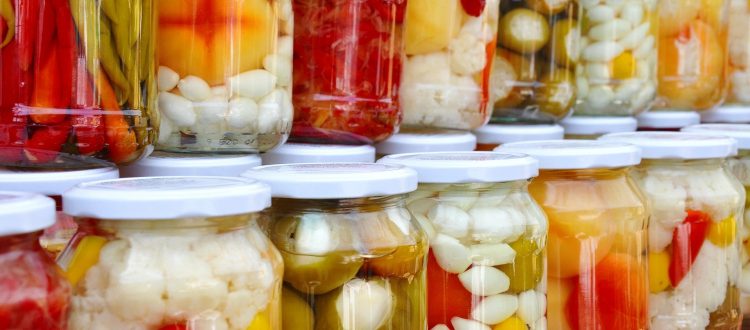
Making pickles, relishes and chutneys is something that people have been doing for generations. Ensure clean jars are used; they can be sat in hot water, then drained and left to dry upside down, or washed in the dishwasher. Ingredients usually include salt, vinegar (acetic acid), sugar, spices and water. Where possible, use Australian recipes as US and European vinegars are stronger than ours. The pickles should be placed in the jar, topped up with vinegar or a vinegar mixture containing at least 50% vinegar. Pickles can be stored in the fridge or, to store at room temperature they must be pasteurised. Chutneys and relishes can be hot filled straight from the pot at a temperature greater than 85 deg C., sealed and the jars inverted to sterilise the lid. For more information on how to make and pasteurise pickles see CSIRO advice.
When making vegetables and herbs in oil it is really important to get the recipe correct to prevent the growth of dangerous bacteria such as Clostridium botulinum which causes botulism. Vegetables and any fresh herbs should be soaked in vinegar overnight with a ratio of 300g of vegetables and any fresh herbs to 100ml of vinegar. This ratio should provide a sufficient level of acidity to control botulism. Drain the liquid, then you can add oil. Jars are best stored in the fridge to minimise the risk of spoilage. Dried vegetables, herbs and spices can safely be added to oil without the vinegar soak and then stored at room temperature.

